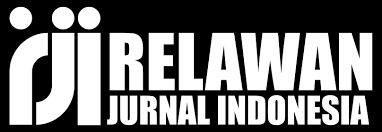FILSAFAT ADMINISTRASI
Keywords:
Philosophy, Administration, Administrative philosophyAbstract
Philosophy is a method that regulates how we wisely use knowledge. According to Henderson in Sadulloh, philosophy is defined as a very deep critical view down to its roots regarding everything that exists. So philosophy teaches and provides understanding that the use of knowledge must be accompanied by wisdom. Philosophizing is driven to find out what we already know and what we don't know yet. To philosophize means to be humble that we will never know everything in this seemingly infinite universe. Likewise, philosophizing means self-correction, a kind of courage to be honest about how far the truth we are looking for has actually reached. The work in scientific philosophy is divided into several components for the existence of science, namely ontology, epistemology and axiology. This research aims to find out what the definition of philosophy and administration is and also the definition of administrative philosophy. The method in this article uses library research, which is a study that examines various reference books and the results of similar previous research which is useful for obtaining a theoretical basis for the problem to be researched. This data collection uses the method of searching for sources and constructing them from various sources, for example books, journals and research that has already been carried out. Library materials obtained from various references are analyzed critically and must be in-depth in order to support the propositions and ideas. The research results show that in administrative philosophy theory, there are various approaches and theories used to understand and develop administration. Several approaches commonly used in administrative philosophy include: classical approach, scientific approach, systems approach, contingency approach
References
Alemina Henuk-Kacaribu dalam buku Pengantar Ilmu Administrasi (2020)
Atong, Abdul Hakim dan Beni Ahmad Saebani. (2008). Filsafat Umum Dari Metologi Sampai Teofilosofi. Bandung: Pustaka Setia
Haryadi, Hendi dan A. Sugiarto. 2009. Administrasi Perkantoran untuk Manajer dan Staff. Jakarta: Kumparan
Hasan, Erliana. 2014. Filsafat Ilmu dan Metodologi Penelitian Ilmu Pemerintahan. Bogor: Ghalia Indonesia
https://accurate.id/marketing-manajemen/manajemen-administrasi/
https://christiangamas.net/perwakilan-dalam-hubungan-internasional-antar-negara/
https://erudisi.com/tata-hubungan-organisasi/
https://malangkota.go.id/pemerintahan/bagian/
https://mediaindonesia.com/humaniora/522613/pengertian-administrasi-fungsi-dan-tujuan
https://msecb-apac.com/manajemen-administrasi-fungsi-dan-tujuannya/
https://you.com/search?q=administrasi%20kepegawaian&fromSearchBar=true&tbm=youchat
J. Sudarminta. (2002). Epistimologi Dasar, PengantarFilsafat Pengetahuan. Yogyakarta: Kansius
Rahmat. 2013. Filsafat Administrasi. Bandung: Pustaka Setia
Sondang, P. Siagian. (2008). Filsafat Administrasi. Jakarta: Bumi Aksara
Suriasumantri, Jujun S. 2009. Filsafat Ilmu.Jakarta: Pustaka Sinar Harapan
Tjetjep, Achmad. (1989). Filsafat Administasi dan Manajemen. Bandung: YBA-IKLUM STIA-LAN RI Jawa Barat
Uyoh, Sadulloh. (2012). Pengantar Filsafat Pendidikan. Bandung: Alfabeta
Ziauddin, Sardar. (2000). Merombak Pola Pikir Intelektual Muslim. Yogyakarta: Pustaka Pelajar
Downloads
Published
Issue
Section
License
Copyright (c) 2023 JURNAL ILMIAH EKONOMI DAN MANAJEMEN

This work is licensed under a Creative Commons Attribution-ShareAlike 4.0 International License.












